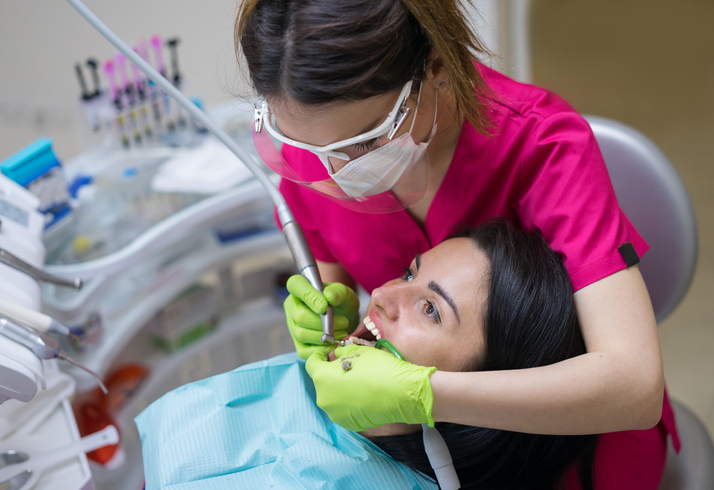
Some people may require more than the standard basic dental cleaning every six months, so how do you know if you need to see your dentist for a deep cleaning?
A professional dental cleaning is recommended every six months. And for most people, the professional cleaning that occurs with those twice-yearly checkups (along with daily brushing and flossing, of course!) is usually enough to maintain healthy teeth and gums.
However, if you haven’t seen a dentist in quite some time, or if your gums are showing the first signs of gingivitis, your dentist may suggest coming in for a deep cleaning treatment. A dentist at Espire Dental can explain the procedure in more detail with you and why you may need it, but in the meantime, here’s a quick look at what to expect during a deep cleaning and how it can benefit your oral health.
What is Deep Cleaning?
A buildup of plaque and tartar can lead to tooth decay, gum disease, and even tooth loss, but only a dental professional can safely remove that accumulation for you. During a basic professional dental cleaning, the dental hygienist will use scalers and scrapers to remove hardened tartar and plaque below the gum line and around all sides of the tooth. The teeth are then polished to sweep away any debris.
Deep cleaning, or gum therapy, goes further than a basic cleaning, as it aims to prevent or slow down the progression of gum disease by targeting below the gum line. Healthy gums have a three millimeter pocket between the gum line and tooth. But a five millimeter gap between your gum line and teeth indicates the beginning of gum disease, or gingivitis. A deep cleaning can close that space where plaque and tartar can hide and collect. It can also correct a receding gum line. Your dentist may recommend a deep cleaning if you have significant tartar and plaque buildup, bad breath, or extremely sensitive gums.
Deep cleaning involves gum scaling and root planing and usually requires two or more visits. During gum scaling, your dentist will remove plaque and tartar from below the gumline. With root planing, your dentist will target the plaque and tartar that form on the roots of your teeth. While there shouldn’t be any pain during the process, your dentist will give you a local anesthetic to minimize any discomfort.
Following the deep cleaning, your dentist will check your teeth and gums to see how they are healing. Side effects are minimal and usually involve temporary sensitivity, so you may want to stick to a soft diet, such as yogurt and mashed potato, and avoid hot and cold beverages for a few days after the procedure.
You may also be prescribed an antibiotic to fend off any infection, especially if you already have a weakened immune system. For general temporary discomfort, you can gargle with warm salt water or take over-the-counter pain medications.
Although rare, infection, nerve damage, and gum recession are possible risks following a deep cleaning. Yet the benefits of a deep cleaning far outweigh any potential risks. Without a deep cleaning, your gum disease could advance to the point where you lose teeth or require more intensive gum surgery — and that’s a prospect you want to avoid at all costs!
When your deep cleaning is complete, return to your normal oral care routine of brushing and flossing daily. You might want to change to an extra soft-bristled brush to protect your gums from irritation. If you notice any extensive swelling or bleeding, contact your dentist immediately.
Your dentist may advise you to return for a basic cleaning every three months instead of six. Yet in most cases, a deep cleaning will set you on a path for healthier gums and teeth!
Time for a Deep Cleaning?
Schedule an appointment at Espire’s La Mesa location today! Our highly trained dentists can check your teeth and discuss whether you need a deep cleaning. Don’t live near our La Mesa, California office? Find one of our other locations near you.
La Mesa, CA
8555 Fletcher Parkway
Suite 102
La Mesa, CA 91942
